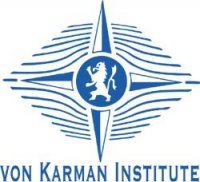

von Karman Institute for Fluid Dynamics
The von Karman Institute for Fluid Dynamics, founded in 1956, is an international non profit organization for post graduate education and research in fluid dynamics. Permanent staff of VKI is about 95 in total, spread over its 3 departments: Aeronautics and Aerospace, Environmental and Applied Fluid Dynamics, Turbomachinery and Propulsion.
The research and training activities are carried out
combining experimental, theoretical and numerical approaches,
and span over aeronautical and non-aeronautical flow
applications of industrial interest. VKI has a large number of
advanced experimental facilities, in total 43 wind tunnels and
test rigs, available in the domain of aerospace, aeronautical
and industrial fluid dynamics. They cover a large span, ranging
from low speed to hypersonic. VKI has its own drawing office,
electronics laboratory and workshop where skilled personnel (17
employees in total) manufacture high-precision facilities and
test rigs. A “high-precision mechanics” section was developed
over the last years and its competence is used for construction
of dedicated instrumentation (fast response and miniature
probes, hot wire,…)
and for non-conventional components and assemblies.
Experimental research is complemented by an important activity
in the domain of Computational Fluid Dynamics (CFD) which now
covers more than 1/3 of the research activities. A network of
workstations and multi-processor computers is available.
Many of the research activities carried out at the von Karman Institute are supported by research contracts with industry or governmental institutions or international institutions. VKI is currently or has been involved, as partner or coordinator, in several EU projects or networks, such as DREAM, VITAL, PROBAND, ADIGMA, LAPCAT II, IDeMAS, MESURE, CRAFT, AETHER, PIVNET, FLOWnet, EUA4X, AMeGOS.
Specific skills for ECOQUEST
VKI is fully equipped with fluid dynamics and acoustics instrumentation (hot wire, microphones, unsteady pressure probes, ...) and in particular with advanced non-intrusive measurement techniques such as LDA, PIV, Schlieren and a high-speed camera for flow visualisation, available in the group of Prof. Anthoine (see key personnel). Since 20 years, VKI is a leader in the development of in-house PIV softwares. VKI is also developing advanced tools for the post-processing of both PIV results and instantaneous CFD results. These tools allow for the extraction, identification and characterization of vortical structures responsible for noise production in many applications.
Since about 10 years, VKI has an expertise in aeroacoustics gained from academic programs (PhD and master programs), government funding programs and industrial contracts. This expertise covers both experiments and numerical approaches in many applications such as the aeroacoustic instabilities in solid rocket propulsion, the thermo-acoustic vibrations in industrial plants, jet noise, fan noise and noise in confined flows. A semi-anechoic chamber for aeroacoustics investigation was recently built and can be used for the investigation of aerodynamic noise in confined and unconfined flows.
Key personnel
Prof. J. Anthoine: PhD in aeroacoustics. Associate professor
in both Aeronautics Department and Environmental and Applied
Fluid Dynamics Department with about 10 years of experience in
aeroacoustics. Leader of aeroacoustics development at VKI.
Responsible of all training and transfer of knowledge within
the AETHER Marie Curie RTN. Director of 5 VKI Short Courses
(Lecture Series) on Aeroacoustics. Prof. Anthoine will
supervise the work which will partly be carried out by a new
PhD student recruited.
Expected outcome/exploitable results and ’action plan' to get results in use
The expected outcomes for VKI are scientifically based
advanced methodologies for turbomachinery noise prediction.
Being a research institute not only the tools but also their
careful experimental validation and their assessment of
accuracy are important objectives. Publication and peer
reviewing is another action to get the results in use. This
aims beyond the applications in ECOQUEST. In addition VAL will
consider the opportunity to patent research outcomes, in line
with the IPR scheme detailed in the Consortium Agreement, in
accordance with the provisions set forth considering joint
ownership and exploitation of background and foreground
knowledge.

